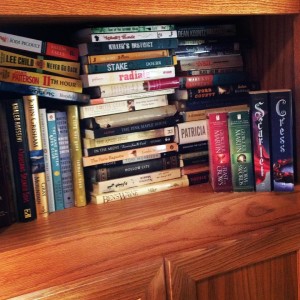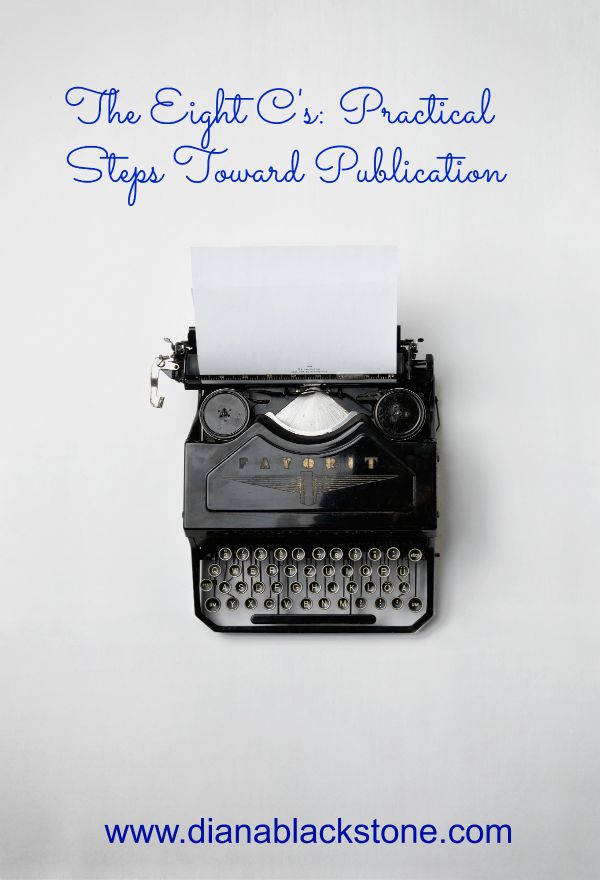Since landing my first traditional publishing contract two years ago, aspiring writers have been asking for my advice. Some have also asked me to read and comment on their work. I am honored by the request and truly want to help and encourage other writers. But as a high school English teacher, I usually have a stack of papers to read and evaluate lurking in my school bag or on my desk. I also have a critique group whose work I read regularly.
One of my gr eatest disappointments is the lack of time to read books just for fun, especially during the school year. Take a look at the HUGE stack of books on my to-read shelf. Since that photo was taken, I’ve added nine more to the pile. I’m willing to read someone’s never-before-seen manuscript if it’s not too long, but here’s a little secret: If you want really great feedback, you have better options than an exhausted English teacher who just longs to grab a book from her to-read shelf.
eatest disappointments is the lack of time to read books just for fun, especially during the school year. Take a look at the HUGE stack of books on my to-read shelf. Since that photo was taken, I’ve added nine more to the pile. I’m willing to read someone’s never-before-seen manuscript if it’s not too long, but here’s a little secret: If you want really great feedback, you have better options than an exhausted English teacher who just longs to grab a book from her to-read shelf.
Since I’m already being honest, I’ll let you in on another secret: I value my relationships too much to be forthcoming if I don’t like someone’s manuscript. I will find something to like about it and comment on that. I know that’s not very helpful. Sorry.
But I have come up with a way I CAN be helpful: I can share what I’ve learned along the way on my own journey–practical steps toward publication. I call them “The Eight C’s.”
Critique Group
If you’re serious about getting published, get into a critique group. This is really not an option for an author aspiring to be traditionally published. A critique group will (hopefully) give you the honest feedback you need to make your work submission-ready. Of course, it won’t matter much if you respond defensively to their suggestions. Listen and consider what they have to say. When I have pitched my work, editors have asked if anyone else has read it. They are invariably pleased to hear that yes, it’s been through a critique group.
Conferences
Conferences can be expensive but attending them is an investment worth making. Research writing organizations in your area. Join them. Google “writing conferences.” Choose both one-day conferences to attend as well as events lasting several days. Take workshops and classes. Learn, learn, learn. Take copious notes and study them later. Apply what you’ve learned to your work-in-progress. When you have something “finished”, read the organization’s website early to find out how to submit it to an agent or editor appearing at an upcoming conference. This is the best way to get your work in front of them.
Craft
Study your craft. In addition to attending conferences, take writing classes. Read books on writing such as Bird by Bird: Some Instructions on Writing and Life by Anne Lamott; On Writing: 10th Anniversary Edition: A Memoir of the Craft by Stephen King, Self-Editing for Fiction Writers by Renni Browne and Dave King, and The Writing Life by Annie Dillard. Read a lot. Read for fun. While reading for fun, study what makes the story work for you. I’ve been writing stories since I was in elementary school, and I’ve taught high school English for over twenty years. Even so, I didn’t realize how LITTLE I actually knew about writing fiction until about five years ago when I began studying the craft in earnest. As you learn, do the sometimes painful work of revision. Finishing a chapter brings a delicious, addicting sense of accomplishment, and a true writer cannot rest until the story is finished. The actual process of writing, however, is sheer hard work. As poet Robert Hass states, “It’s hell writing and it’s hell not writing. The only tolerable state is having just written.”
Contests
Look for writing contests and enter them. Study their submission guidelines and past year’s winners to get a good grasp on what they’re looking for. Stick to the requested topics, genres, and word counts. This is another way to get your work noticed, and it can count as a publishing credit later. The more smaller publishing credits you can report, the more credibility you bring to the table when pitching your larger work to an editor or agent.
Connections
A mistake I made was not understanding the value of making more connections with other aspiring authors and newly published authors. Writers tend to be introverts, so it’s hard to reach out to strangers. But then when it was time for my book to be published, I didn’t have anyone to ask to endorse it, and I knew hardly anyone to ask to review an advanced reader copy. I’m slowly getting into the game now that I have to promote my novel When Sparrows Fall (shameless plug), but it would have been much better to establish relationships earlier. What I should have done is find new authors, read their works, and write book reviews of those I loved. They may have returned the favor when my book came out. How do you find these people? They’re writing blogs, and they’re all over Twitter, Goodreads, and Facebook. Start by following an author you admire on Twitter who writes a genre similar to yours. See who his or her other followers are. Look for the aspiring authors in a similar genre. Follow them.
Consider the Publisher
Check out publishers’ websites. What kinds of books have they published before? What are they looking for now? Don’t waste your time (or theirs) submitting outside of the publishers’ requests. It doesn’t matter that your adult science fiction novel is brilliant if they’re looking for middle grade historical fiction. Your well-told folktale may not be a good fit in the publisher’s line-up of fantasy and paranormal thrillers. Once you’ve found a publisher who takes the kind of work you produce, follow them on social media. Every now and then, they might advertise a call for open submissions, even without an agent. Make sure to study their submission guidelines and follow them, for heaven’s sake. The same applies when looking for an agent to represent you to publishers.
Clean It Up
Something I’ve heard over and over again from editors is that they won’t bother reading a manuscript full of spelling, punctuation, and grammar errors. Maybe it could have been the next best seller, but if the editor deletes it from her computer or tosses it in the trash after reading the first page, we’ll never know what could have been. If you’re lucky, the editor might manage to make it all the way through the manuscript, but then he picks up someone else’s work. It’s just as good, and it’s almost entirely error-free. It will be much easier to edit. Who do you think he’ll choose to work with? If you know this is a weak point, invest in some good grammar books. Start with the writer’s bible, The Elements of Style by William Strunk Jr. and E.B. White. I also greatly enjoy Eats, Shoots and Leaves: The Zero Tolerance Approach to Punctuation by Lynne Truss. It’s funny yet instructional. Call me an English nerd, but I couldn’t put that book down! After proofreading and editing your manuscript word-by-word and line-by-line, ask someone else to proofread it for you (other than an exhausted English teacher). This is another good reason to get into a critique group.
Courage
It takes a certain amount of courage to let people read your work. You’ve put your soul into it. What if they don’t like it? Chances are someone won’t. Look at reviews on Amazon of books you love. There are bound to be a few bad ones. Not everyone likes fantasy. Some people think a book is boring if it doesn’t contain at least one dead body. If you use the fear of rejection as a paperweight keeping your manuscript firmly in place in your desk drawer, you’ll never get published. Get it out of there. If it’s rejected, try another publisher or agent. Consider it a bonus if the editor explains why she rejected it, and use that feedback to make it better. Keep studying the craft. When I submitted my manuscript, I took the attitude “I have nothing to lose.” I planned to submit it to fifty publishers over a period of years and reconsider my goal of becoming an author only after fifty rejections. Fortunately, it didn’t come to that. Louis L’Amour was rejected 200 times before Bantam finally took a chance on him. He went on to become their most successful author with 330 million sales. J.K. Rowling’s Harry Potter and the Philosopher’s Stone was rejected twelve times. C. S. Lewis faced years of rejection before his Chronicles of Narnia finally found a publishing home. Don’t give up easily!
If you are a new or aspiring author, what other advice would you give?




Permalink
Hello There –
I figure you are still teaching High School – but just in case you are not… and you have an abundance of time (and have read all those “to-read” books on your shelf0 I thought I’d just ask…
I have the wonderful privilege of teaching English at Santiam Christian to grades 7-8. I was wondering if you ever do school presentations. I just took this job and my students seem resistant to writing because it has been presented as a list of rules to follow. I’m trying to show them that it is an expression, a passion… and it is a way of life for many! I would love to incorporate local authors into our story unit in November. Let me know if you ever make presentations, etc. Thanks for you time!
— Lisa Sheldrake
Santiam Christian School
JH English Teacher
541-760-9021
Permalink
Hi, Lisa. I am interested. I used my private email to reply so that we can communicate more easily that way.